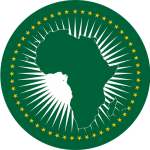
The 450-megawatt Souapiti hydroelectric dam in Guinea is scheduled to begin operating this fall and will bring badly-needed electricity to one of Africa’s poorest countries.
The dam is one of dozens of similar hydroelectric power facilities that China is underwriting and constructing across Africa. The Souapiti dam, in particular, is being financed via the China Eximbank as part of Beijing’s Belt & Road Initiative and is being constructed by the state-owned China International Water and Electric Corporation (CWE). When complete, CWE will jointly own and operate the plant together with the Guinean government.
While no one disagrees with the need in Africa for power, especially in a country like Guinea where only a small minority of people have access to reliable electricity, construction of dams like the one at Souapiti does come at a high environmental and human cost.
“Because of the criticisms of the environmental and social impact of some BRI projects, it’s really important that Chinese companies and banks involved in these projects in Africa do their utmost to respect human rights standards.”
Jim wormington, senior africa researcher at human rights watch
In order to fill the dam’s reservoir, 16,000 people from 101 villages will have to be displaced, according to a recent report by Human Rights Watch (HRW). Although this kind of dislocation is common with any kind of large-scale economic development, the issue here is whether or not those displaced are losing more than just their homes but also access to land, food and their livelihoods?
And what responsibility, if any, do Chinese stakeholders have when these kinds of mass displacements take place?
Yaqiu Wang, a China researcher at Human Rights Watch and Jim Wormington, a senior researcher in HRW’s Africa Division who co-wrote the report, join us to discuss what role they contend that the Chinese government, financiers and contractors play when so many people are losing their homes and livelihoods in Guinea.
Show Notes:
- Human Rights Watch: “We’re Leaving Everything Behind” The Impact of Guinea’s Souapiti Dam on Displaced Communities
- Agence France Press: Guinea’s prized dam project under fire over village displacements by Emmet Livingstone
- People’s Daily: China’s hydro dominance in Africa and beyond by Ma Danning
About Yaqiu Wang and Jim Wormington:

Yaqiu Wang is a China researcher at Human Rights Watch, working on issues including internet censorship, freedom of expression, protection of civil society and human rights defenders, and women’s rights. Wang was born and grew up in China, and has a MA degree in International Affairs from George Washington University. Her articles have appeared in Foreign Policy, The Atlantic, The Washington Post, and elsewhere. She has provided commentary to the BBC, CNN, the New York Times and others. Prior to joining Human Rights Watch, Wang worked for the Committee to Protect Journalists.

Jim Wormington is a senior researcher in the Africa Division. He was previously an attorney at the American Bar Association Rule of Law Initiative, where he conducted research to inform rule of law and human rights development programs, and implemented programs in West and Central Africa. Wormington has also worked at the International Crisis Group and the War Crimes Chamber of the State Court of Bosnia and Herzegovina. He is an English-trained barrister, an associate member of QEB Hollis Whiteman Chambers, and was educated at Cambridge University (MA) and New York University School of Law (LLM). He is fluent in French.










